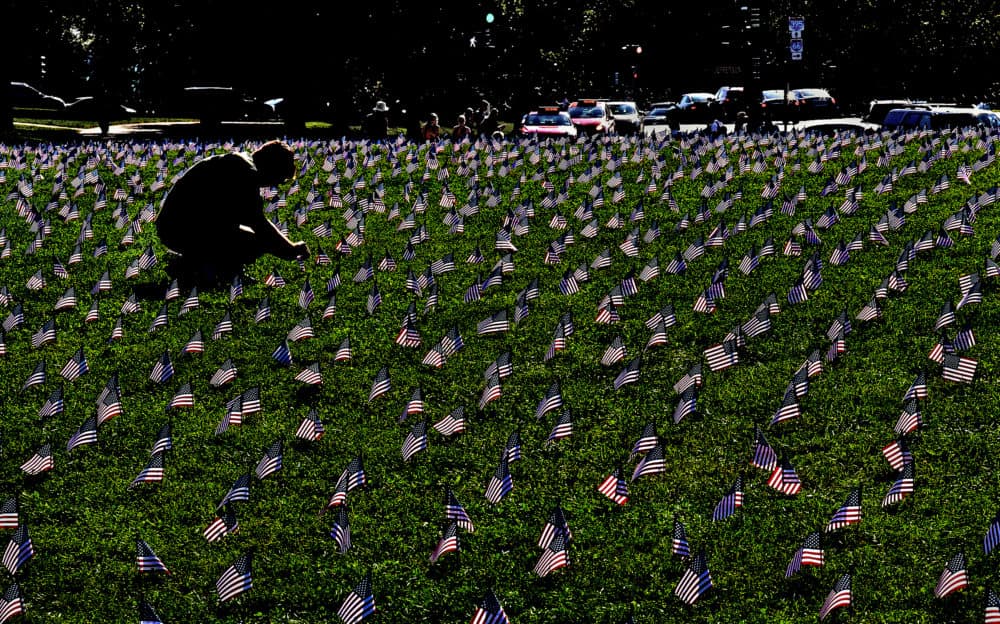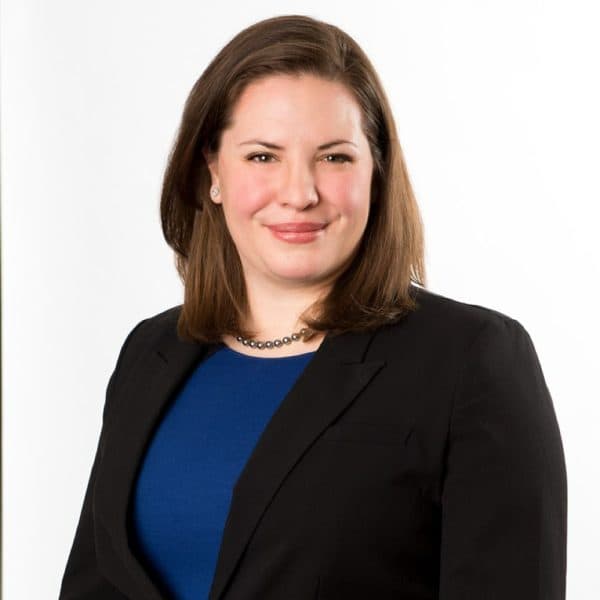Advertisement
Commentary
More Veterans Die By Suicide Than In Combat. But It's Preventable

For many veterans, the simple act of asking for help is very difficult. Personal responsibility is a cornerstone of military culture. Yet this ethos of self-sufficiency too often prevents many veterans from seeking even basic medical or legal assistance — professional help that all of us occasionally need.
The consequences of this — for veterans, their family members, friends and the communities that care about them — can easily turn tragic. September is National Suicide Prevention Month, and we owe it to our veterans to shine a light on an enduring epidemic.
Veteran suicide is one of the greatest crises of our time. Since Sept. 11, 2001, just over 30,000 veterans have died by suicide — four times more than the number of U.S. military personnel who died in combat in Iraq and Afghanistan. In 2019, the most recent year of data available from the Department of Veterans Affairs, 6,261 veterans in the United States took their own lives. That is a 7% decrease from the previous year, but, on average, 17 veterans still lost their lives to suicide every day. That’s a staggering number, particularly when compared to the suicide rate of non-veterans. The VA reports that former service members died by suicide at a rate twice as high as non-veterans, and veterans ages 18-34 died at a rate almost three times higher.
Since Sept. 11, 2001, just over 30,000 veterans have died by suicide ...
There is no single reason a veteran, or anyone, believes suicide is their only option. Veterans in this country are an extremely diverse group, by age, gender, education level and socioeconomic status. However, research clearly shows a correlation between suicide and substance use disorders, untreated or under-treated mental health conditions (often borne or exacerbated by their military service) and stress derived from ongoing economic, legal and relationship challenges.
Research has also shown that veterans with legal problems are nearly twice as likely to have serious thoughts of suicide, and are 1 1/2 times more likely to attempt it, than veterans without legal problems. It’s one of the reasons the Department of Veterans Affairs strongly encourages VA-housed legal clinics, where VA sites partner with legal providers, such as ours, to help resolve legal problems that are burdening veterans.
Partnerships between organizations — medical care providers and legal aid professionals, for example — are often effective in providing swift and targeted assistance thanks to streamlined communications and referral systems. Health care workers typically cannot resolve housing instability, food insecurity or child custody challenges, but lawyers can help. Attorneys can prevent evictions, improve unsafe living conditions and help veterans with financial problems qualify for benefits. Legal representation can also ease the emotional and financial consequences of painful breakdowns of family relationships, which are disproportionately common among veterans.
Suicide is rarely discussed in the United States, and far too often, we shy away from shining a light on its many complexities.
This is why legal aid organizations, such as Veterans Legal Services, routinely collaborate with social workers and others working directly with veterans. Our team helps them identify challenges in veterans’ lives that could be greatly improved through legal assistance, and equips them with information to connect the veteran with a lawyer. The goal is always to try to resolve the issues causing the veteran undue stress.
We don't yet have comprehensive data on veteran suicide rates during the COVID-19 pandemic, but there are some things we already know. For one, gun sales increased dramatically nationwide in 2020. In Massachusetts, which has one of the lowest gun-ownership rates in the country, firearm background checks increased by almost 25% compared to each of the previous four years, to more than 262,500. Why does this matter? Because firearms are the most common means of suicide in the United States, with slightly more than half of all suicides occurring by firearm, according to the Suicide Prevention Resource Center. Nine out of every 10 former service members in this country are men, and 70% of male veteran suicides involved a firearm.
Veteran suicide is preventable. We all have to do our part to make sure our nation’s veterans know help is available and they are not alone. Suicide is rarely discussed in the United States, and far too often, we shy away from shining a light on its many complexities. But we do a disservice to our veterans, and to all who silently struggle, when we fail to talk about mental health treatment, social and economic stress, and the divide between the poetry of honoring our veterans and the prose necessary to end a national tragedy.
Veterans in need of support or experiencing suicidal thoughts can get help 24 hours a day. Dial 988 and then press 1, text 838255 or visit this website to connect with a Veteran Crisis Line Responder.

